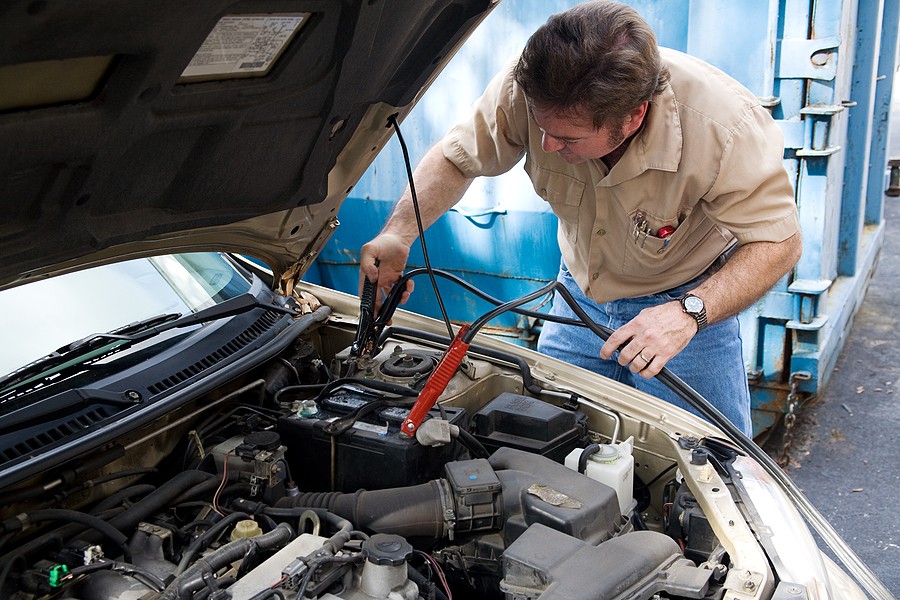If you're wondering what you should I do if my old car wouldn't start, here's all you need to do:
- Gather your tools
- Narrow down the list of potential culprits
- No sound or power
- No sound with power
- No start, but start our clicks
- The engine cranks but won't start
- Car cranks and grinds
- Decide to fix or sell your car
- Understand how to sell a car that doesn't run
As vehicles get older, we start to deal with all sorts of problems, especially during cold winter seasons and hot summer seasons. Some of these problems could range from engine troubles to vehicle starting issues.
Dealing with a vehicle not starting can be frustrating, especially if this situation happens to you in the middle of nowhere or if you're in a rush looking for an important meeting or appointment. However, unfortunately, when it happens, you have to deal with it.
Being proactive about the problem and understanding that your old vehicle is more susceptible to starting issues now is critical. It is also important for you to understand what exactly you need to do in such a situation.
This article provides a comprehensive guide to help me answer the question, what should I do if my old car won't start? It walks you through some recommendations about narrowing down the list of potential culprits and helps you understand whether you should fix the vehicle or sell it now.
What should I do if my old car won't start?
Starting issues can be very frustrating. They become more critical if they are an ongoing problem happening more often. This is a very common situation for those who will drive older cars and understand that it feels that the vehicle might stop or not start at any point.
Since the problem is very common, it's important for you as a car owner to understand what you should do with your old car if it doesn't start. Let's take a look at what automotive experts recommend:
1. Gather your tools
Since you know you're driving an older car, you must always be ready. In other words, you've been in this situation and understand what it looks like when your vehicle doesn't start, and you're rushing for an important meeting.
Therefore, you should always be ready for a vehicle breakdown. For example, you might want to have a set of tools that could help you get the vehicle started temporarily or help you navigate the vehicle and determine what you can do so you don't need to waste your money on the towing service.
For example, most automotive experts recommend having a set of screwdrivers as the basic tools for anyone dealing with starting issues in older cars. Typically, you might need standard or cross-headed screwdrivers.
In addition to the screwdrivers, you might need a set of wrenches. Pure, you might need those with both SAE and metric systems so you can use them when needed and adjust them to get access to certain components in your vehicle.
Finally, you'll need a set of jump starter cables because those will be your friends whenever you're dealing with a car starting problem, especially if the issue is related to the battery.
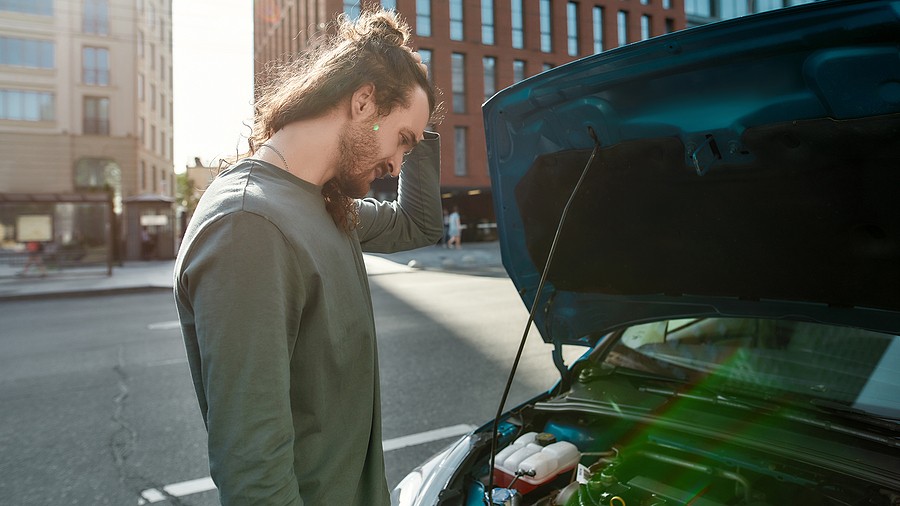
2. Narrow down the list of potential culprits
It's important to know that the vehicle starting problems can be linked to many components in your car here; therefore, one of the first things you need to do is to understand which component is causing the issue. Otherwise, you will be dealing with a long pool of potential culprits that could be overwhelming.
One way to determine and narrow down the list of potential culprits is by monitoring the vehicle's behavior. For example, the vehicle's sound in power and any behaviors could help you determine which component is causing the issue.
Let's take a closer look at some examples that you might come across:
No sound or power
The first thing we're common situation that you might deal with when driving an older car is when your vehicle does not start and also doesn't make any sounds. You can check the vehicle dashboard because it can tell you whether it's the battery.
For example, if you notice that the dashboard doesn't have any electric components working or any lights turned on, it could mean that your battery is completely dead. It could also mean that the battery is not connected properly; you only need to reconnect the cables and ensure the battery is connected to the electric system.
In some instances, and depending on the status of your cables, you might need to clean them up and remove any rust depth that was building on the vehicle battery. As you put them back, you must follow the proper instructions and understand which cables should be removed first.
No sound with power
There's a very common situation that you might also deal with when your vehicle has starting problems. A lot of people notice that your dashboard will be turned on. In other words, the electric components might have some power, but the vehicle's engine does not make any noise.
If that's the case, it could mean your vehicle battery is not the culprit. But, on the other hand, if the battery is dead, you won't see any of these electric component working. Therefore, you should focus on something else.
One of the things that you could try is pushing the accelerator to the floor. This is a recommendation only for vehicles equipped with a manual transmission because it could mean that the transmission is causing the issue.
If you're not driving a vehicle with a manual transmission, you might want toto put your vehicle in the park and then try moving it back and forth to see if it willna move.
Another thing you could try is to check the battery of the key fob. There might be a problem with the key fob itself, and one way you can do this is to try the manual key or try using a different key fob from your mechanic to confirm that it's not the culprit.
No start, but start our clicks.
When your old car doesn't start, you will need to notice any weird sounds coming from the starter motor because if you feel that the starter motor is clicking, it might indicate an issue with the electric battery resistance.
Check the battery resistance and see where it falls. If you feel that it's lower than 12.45, the battery is not fully charged and might not be able to support the electric system preventing your vehicle from starting.
If that's the case, you might need to replace the battery for your vehicle to start again. Otherwise, you'll have to rely on the jump starter whenever you want to kick off your vehicle.
The engine cranks but won't start.
If you feel that your engine makes some cranking noise but never starts, there might be a problem with the fuel tank itself. Many people might underestimate this very common situation and think that their vehicle has some fuel when they're not.
Sometimes, there might be a problem with the fuel components, like the fuel pump. There's also an issue with the fuel gauge on the dashboard that could show you enough fuel in your system, but it's not.
Car cranks and grinds.
Finally, if your car starts making cracks or grinding noises, there might be an issue with a flywheel connected to the starter. If the flywheel is not in good shape, it might prevent the whole starting process from happening.
Your mechanic should help you look closer at the flywheel and confirm that it's not the faulty components. If that's not the case, you might need to check the timing belt, which could prevent the process from happening.
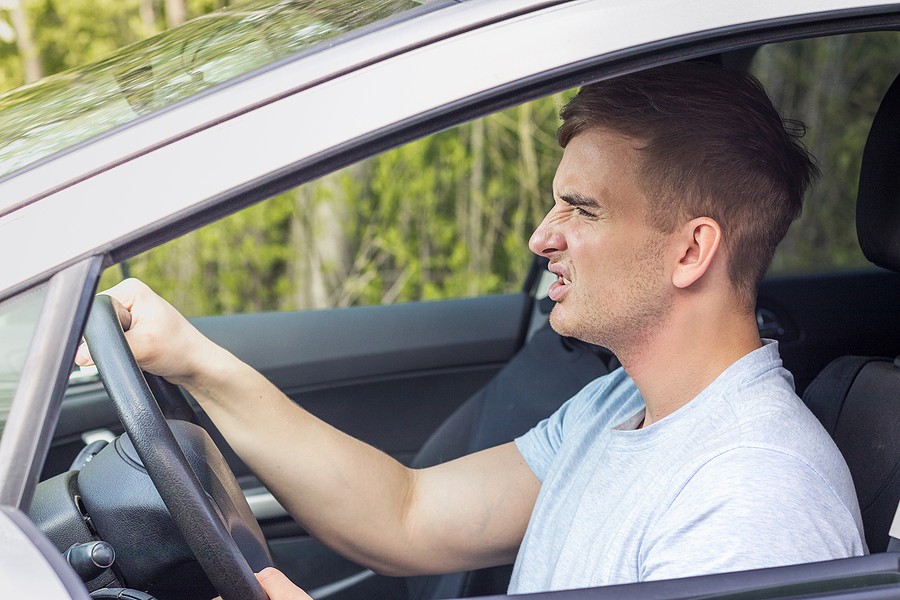
3. Decide to fix or sell your car
Once confirming the rules culprit of your car problem, the next step is determining whether you should fix your car or sell it as is. If you feel that the repair costs are getting close enough to the vehicle value, it might not make sense for you to fix the vehicle, and you should sell it instead.
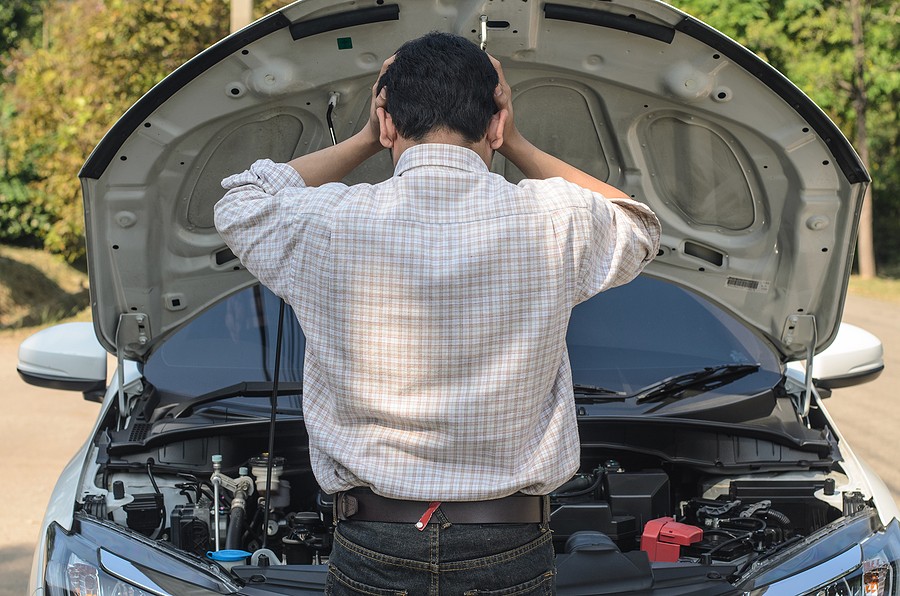
4. Understand how to sell a car that doesn't run
If you decide to sell a car that won't start, you must follow the right procedure and find the right buyers. In other words, most private buyers might not be interested in purchasing such vehicles, especially if the problem is related to a significant component.
The call might want to try companies like gross cash buyers willing to buy your car regardless of its type or condition if that's the case. All you need to do is to call our team at 773-791-4363.
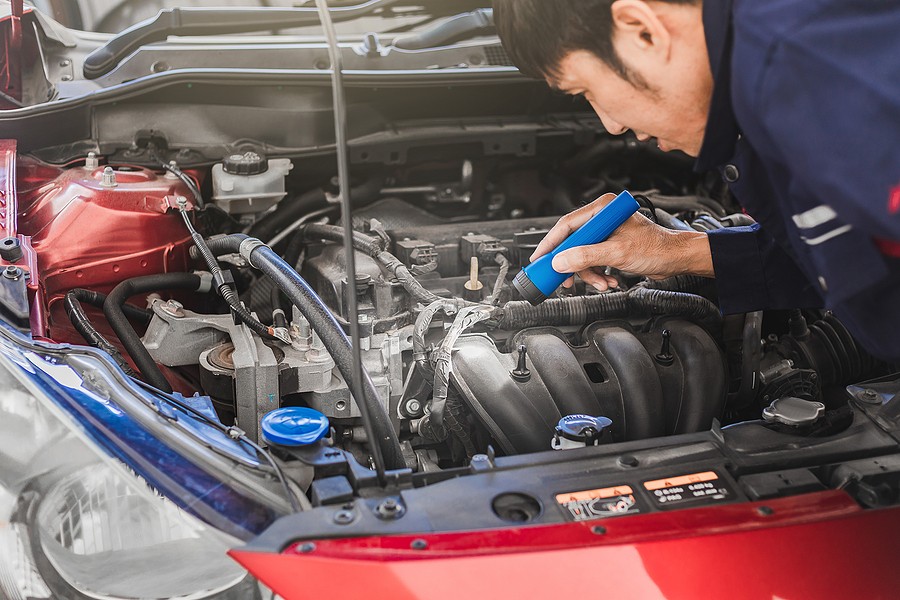
Final thoughts
Driving older cars means ongoing problems and lots of repairs. One of the common things that you might run across is vehicle starting issues which triggers the question, what should I do if my old car won't start?
This article provides a step-by-step process and detailed guidance on how to help you decide whether to fix the vehicle or sell it. Of course, if you feel it's not worth fixing your car and would like to sell it, you can always call Cash Cars Buyer at 773-791-4363.

